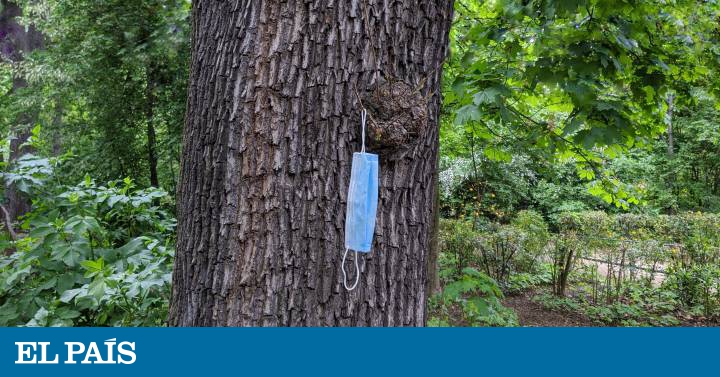Deliberately or not, many of us have been depending on forest products during the covid-19 crisis. From the paper for mouthpieces and respirator filters to the packaging of packages for online purchases, and even the toilet paper that frightened people have bought in bulk. The forests have been responding!
MORE INFORMATION
- Forest loss is reduced, but not enough
- Give back to the animal kingdom what is theirs
- Forests and biodiversity: too precious to lose
Forests continue to be sources of food, income, fuel and shelter for hundreds of millions of people around the world, offering a safety net for many as life changes as we have known it due to the pandemic. However, if we do not take preventive measures, there is a real danger that COVID-19 will nullify decades of progress in slowing deforestation rates and promoting sustainable production and trade in forest products. It would also have huge consequences for forest communities and livelihoods.
The main risks are of three types. First, we expect greater pressure on forest resources in rural areas, as people lose their livelihoods, as household incomes decrease, and as remittances sent by family members working in the country are exhausted. Foreign. Many will return to the forests - nature's supermarkets - in search of survival and to create alternative sources of income, to hunt animals, in search of wild food and firewood for cooking. All of this could lead to overuse and forest degradation. Young people returning from cities to rural areas will increase the pressure and many of them will carry disease to remote and unprepared areas, where there is little availability of medicines.
Young people returning from cities to rural areas will increase the pressure and many of them will carry diseases to remote and unprepared areas
Secondly, forest products companies that depend on workers and transport to take their products to international towns, cities and markets, face serious difficulties due to covid-19. This will impact the livelihoods of people employed by around 45 million small and medium-sized forestry companies worldwide. These constitute between 80 and 90% of forestry companies, both formal and informal. They are vulnerable especially during an economic crisis, with low ability to defer their expenses if they do not receive income. Also, while large producers in the formal sector are likely to apply government guidelines for restricting physical activities, those in the informal sector may choose to continue, risking further spread of the virus.Third, by reconciling priorities in the wake of the pandemic, countries can narrow their approach to legal and sustainable timber production, nullifying achievements that have been difficult to gain at the international and national levels. Loosening rules can increase the possibility of illegal activities and fraudulent practices in the timber sector, increase conflicts over land tenure, and weaken independent monitoring and surveillance activities on the ground.
Higher deforestation rates would mean a serious setback to efforts to meet emissions targets. To date, these are already greatly behind schedule and have not reached the scale necessary to reduce global warming or halt the loss of biodiversity, which, in turn, will have negative effects on poverty and food security.
The international community and governments must pay due attention to the role of forests in ensuring livelihoods, ensuring the continuity of the rights of vulnerable communities and that progress towards global goals for change is not reversed. climate and development.
Actions we must take include protecting forest-dependent communities, making them more resilient. One concrete way to do this is to offer local communities aid packages that pay the young and unemployed to restore ecosystems in and around the communities. This will not only help to reclaim productive land, but also - if done on the right scale - to restore biodiversity and carbon storage in trees and soils.
We must maintain the momentum gained in reducing deforestation and support community forest management and small businesses that offer products of legal and sustainable origin. Today more than ever, it is important to find strategically sound and sustainable solutions to help people who have lost their income and livelihoods. This phase includes the intensification of support for forest products obtained in a sustainable way, protecting the sector as a pillar of the sustainable economy against the injection into the market of products of illegal origin; in addition to maintaining the internationally agreed standards on wood removed legally.
Forests are critical to achieving many of the Sustainable Development Goals, and will play an essential role in social and economic recovery as a consequence of the covid-19 crisis. We must protect our forests so that they remain the foundation of a sustainable future for all of us.
Ewald Rametsteiner is deputy director of the Forestry Department of the Food and Agriculture Organization of the United Nations (FAO).
You can follow PLANETA FUTURO on Twitter and Facebook and Instagram, and subscribe here to our newsletter.

